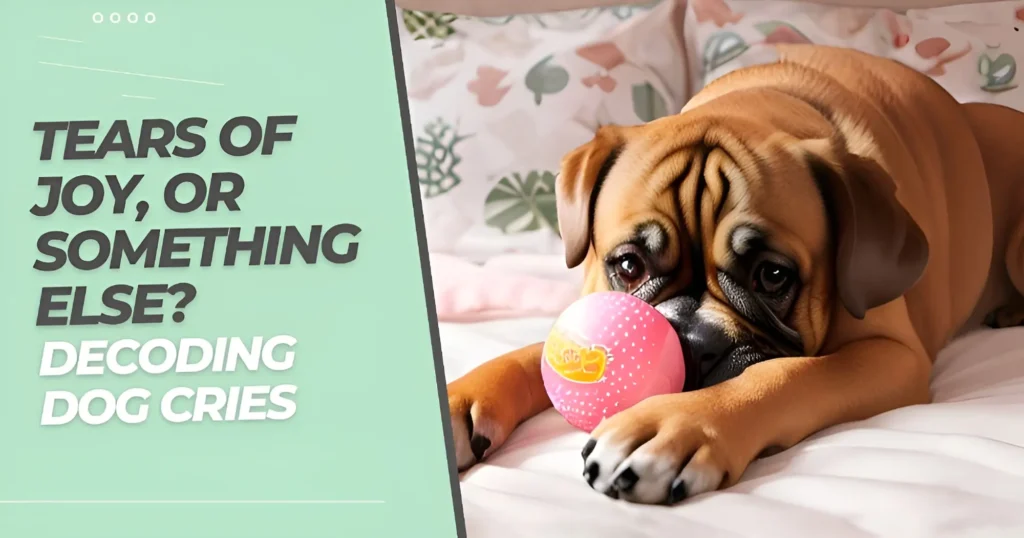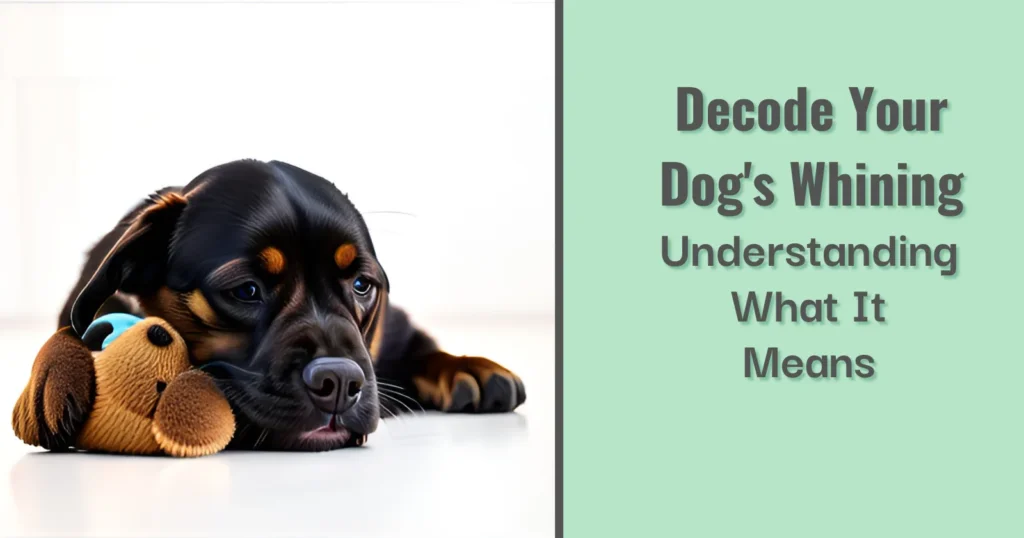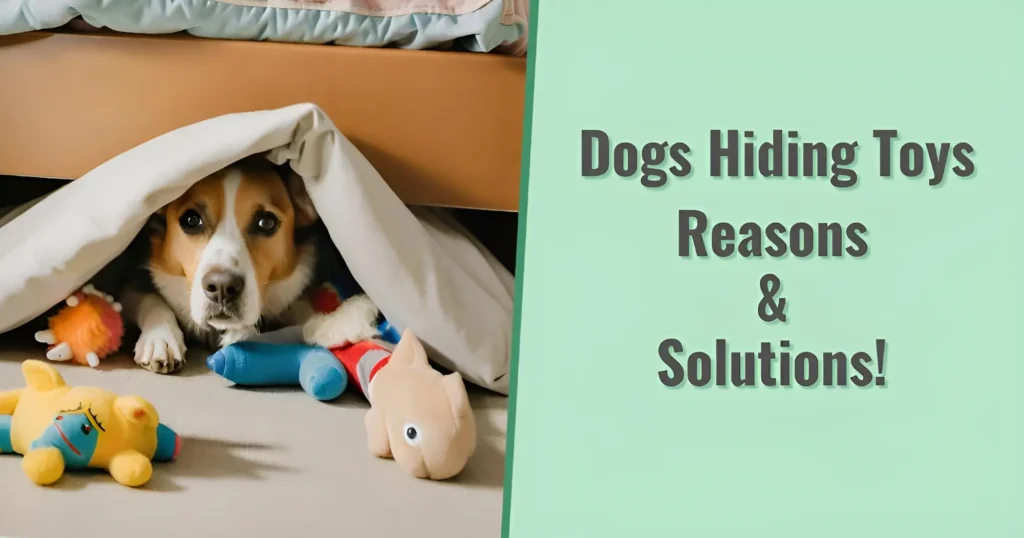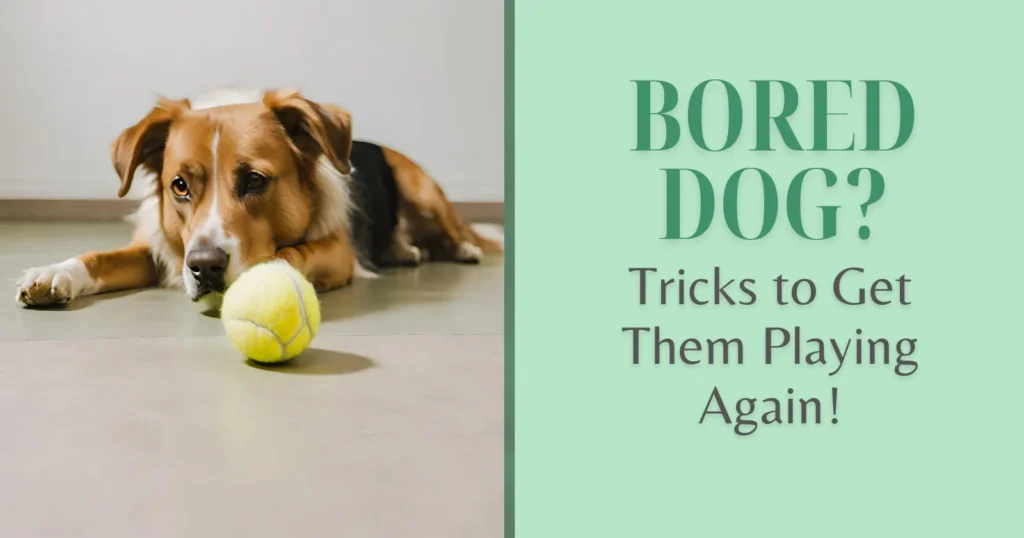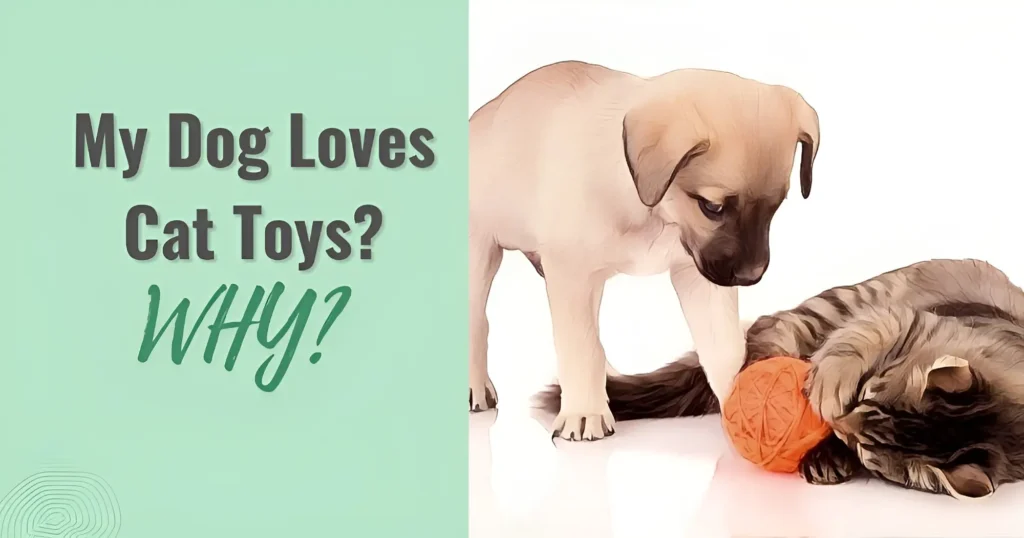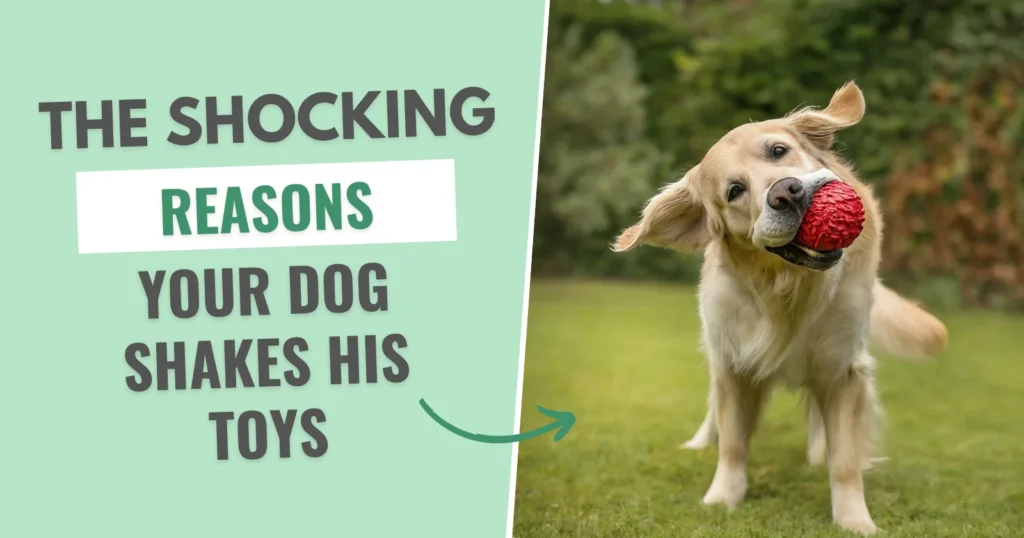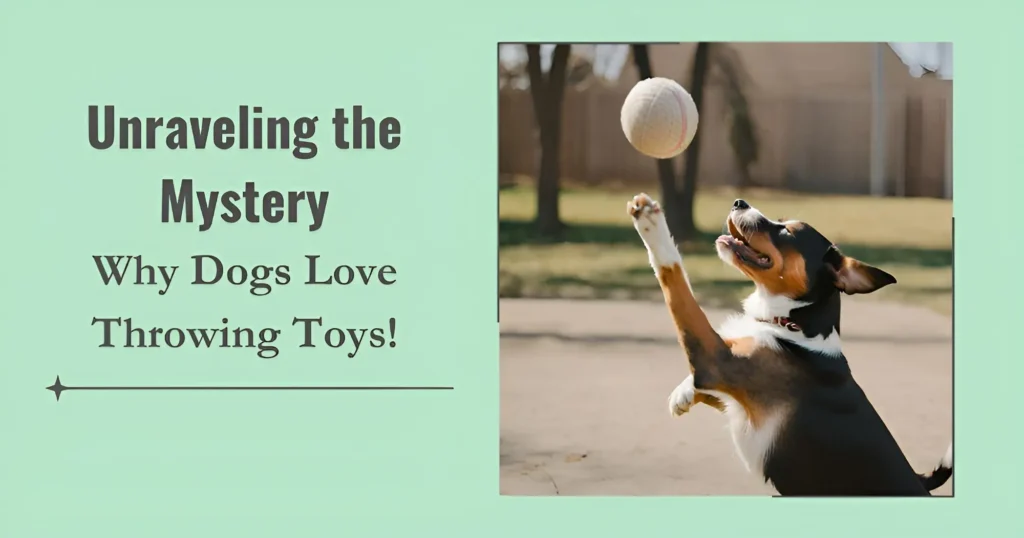I’ve encountered numerous canine behaviors that are both fascinating and confusing. From chasing toys after throwing them in the air to humping their toys, their behaviors vary continually. Among these behaviors, dogs’ reaction to squeaky toys stands out as a topic of widespread interest and concern among pet owners. Through thorough research, personal experience, and insights from the canine behavior community, I aim to shed light on why some dogs cry or howl at squeaky toys and why others may not like them.
The three key aspects include predatory instinct, emotional association, and the urge to gain attention. However, their lack of interest may result from sound sensitivity, negative association, and lack of interest.
Why Does My Dog Howl at Squeaky Toys?
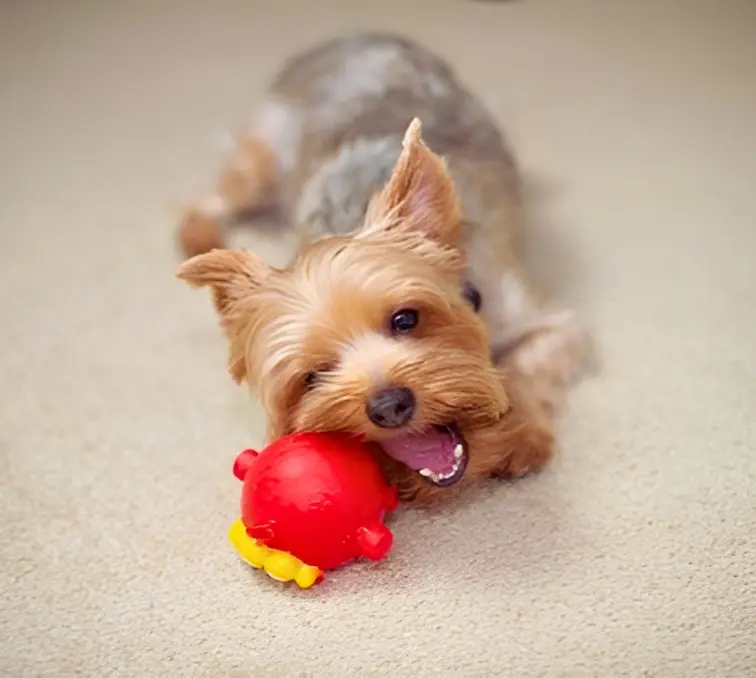

The Predatory Instinct
Dogs, despite their domestication, retain some of their ancestral predatory instincts. The high-pitched sound of a squeaky toy can mimic the distress calls of prey animals, which may trigger your dog’s innate hunting drive. This response can be particularly pronounced in breeds with strong hunting backgrounds. In my experience, watching my neighbor’s Beagle react to a new squeaky toy was a clear demonstration of this instinct. She would perk up, howl, and then “hunt” the toy, showcasing an age-old behavior pattern in a modern living room setting.
Emotional Response
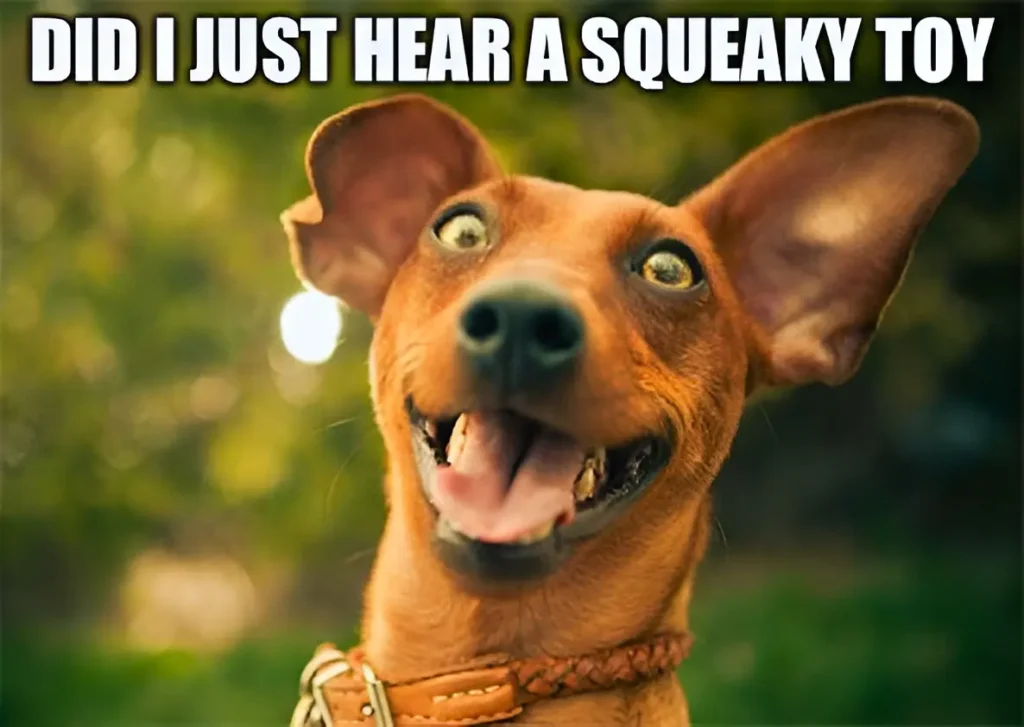

Dogs can also howl at squeaky toys as an emotional response, either out of excitement or frustration. The excitement of engaging with the toy and the frustration of not being able to ‘catch’ the sound source can lead to vocal expressions. Remember, howling is a form of communication in the canine world, and through it, your dog might be trying to convey their feelings about the toy.
To understand their emotions better, you may want to consult with a professional to separate one from the other.
Attention-Seeking Behavior
Some dogs quickly learn that howling at their squeaky toys gets them attention from their humans. Whether it’s positive reinforcement like laughter and engagement or even negative attention like being told to quiet down, it’s still a form of interaction. My Labrador seemed to howl at his toys, mainly when the house was quiet or he felt he wasn’t getting enough attention. It was his way of saying, “Hey, look at me human!”
Why Does My Dog Not Like Squeaky Toys?
Sound Sensitivity
Not all dogs are fans of the high-pitched noise produced by squeaky toys. Some dogs are susceptible to sounds, and what seems like a fun noise to us can be overwhelming or even distressing for them. Sound sensitivity can vary widely among individual dogs and can be influenced by their breed, past experiences, and personality. I’ve noticed that my friend’s senior dog, a gentle Golden Retriever, would leave the room whenever a squeaky toy was introduced, displaying his discomfort with the noise. Imagine that, an old dog who gets annoyed when a toy is “loud”, the irony.
Negative Associations
Dogs can also develop negative associations with squeaky toys based on past experiences. Suppose a dog has had a bad experience with a toy that caused them fear or pain (such as biting down too hard and getting hurt). In that case, they might develop an aversion to all toys that make a similar noise. Building positive associations with toys through gentle play and rewards can help overcome this aversion, but it requires patience and understanding.
Remember, you can not force a toy on your dog they are the ones who have to pick it out but you can help boost their interest in them.
Lack of Interest
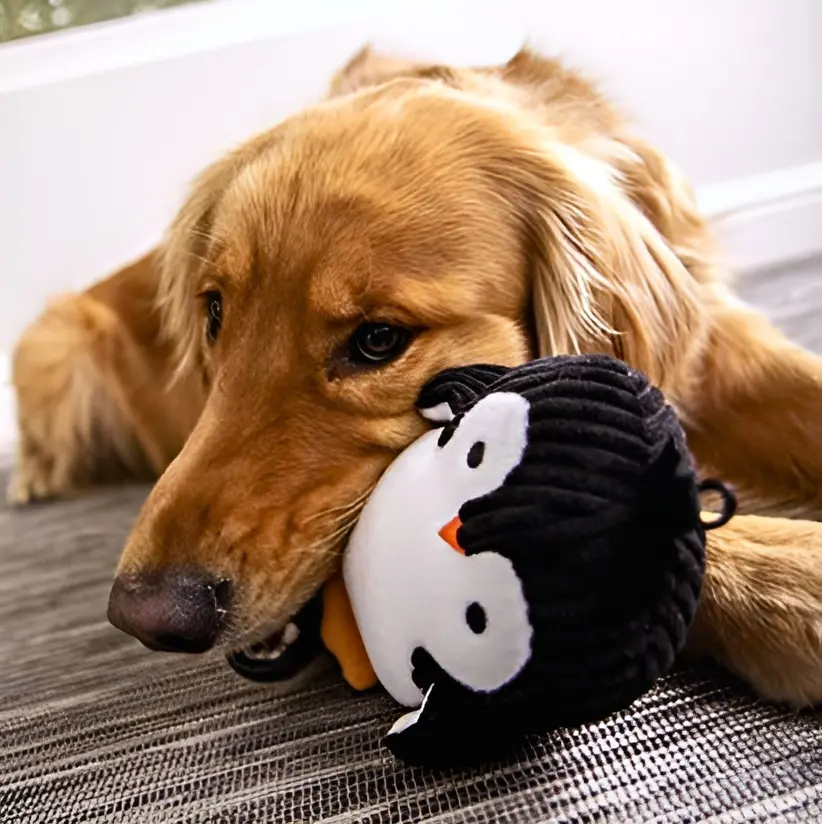

It’s also possible that a dog simply does not find squeaky toys appealing. Just like humans, dogs have individual preferences. Some may prefer toys that involve interaction with their humans, like tug-of-war ropes or balls, over the independent play that squeaky toys often encourage.
As a dog parent, I’ve observed a wide range of reactions to squeaky toys among my own pets and those of my friends and clients. Understanding these behaviors requires a mix of patience, observation, and sometimes a bit of trial and error with different types of toys. Remember, the key to a happy, engaged dog is not the toy itself but the quality of interaction and playtime they share with you.
I hope this exploration into the canine psyche helps you better understand your furry friend’s reactions to squeaky toys. Whether your dog is a howler, a silent hunter, or indifferent to squeaks, each behavior is a window into their unique personality and instincts. By respecting their preferences and sensitivities, we can foster a deeper, more compassionate bond with our beloved pets.

